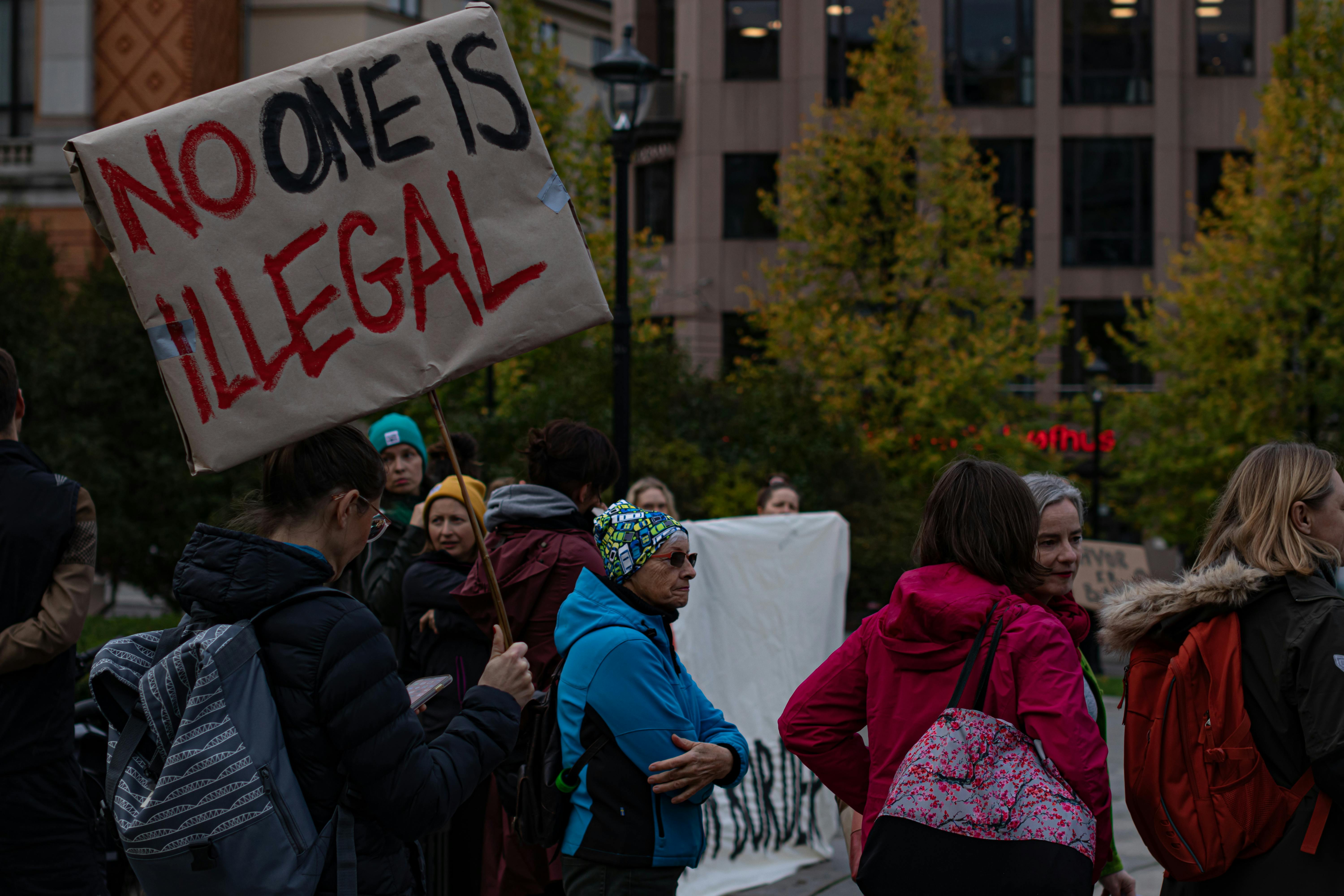Image credit: Maciej Prus from Pexels
Let us slide into your dms 🥰
Get notified of top trending articles like this one every week! (we won't spam you)What does a new Trump term mean for international students?
To be honest, immigration policies aren’t exactly the first thing that comes up in conversations amongst high schoolers. But if you or someone you know is an international student or planning to apply to college in the U.S. from abroad—it definitely should be.
International students are a huge part of American education. They bring fresh perspectives, contribute to campus diversity, and yes, boost the American economy. During Donald Trump’s presidency, policies shifted in ways that made it harder for international students to feel welcome or even stay in the country. Now that Trump is back in office, it’s worth asking: How could another Trump term affect international students?
Spoiler: it’s not great.
Take the Quiz: What Kind of Political Personality Are You?
Ever wondered what role you’d play in the political world? Take this fun quiz to find out!
The Trump Era
During Trump’s time in office from 2017 to 2021, his administration focused heavily on restricting immigration. That didn’t just mean border walls or travel bans—it also affected students coming to the U.S. to study. In 2020, the Trump administration announced that international students taking online-only classes during the pandemic would be required to leave the U.S.
- According to ICE, over a million international students could’ve been impacted by the rule.
Public backlash was horrific. Universities like Harvard and MIT sued the government, and the policy was eventually dropped.
Visa Changes and Uncertainty
Visas are a lifeline for a lot of international students. Without a valid student visa, no college dream becomes reality. Under Trump, the process of obtaining and keeping an F-1 student visa became substantially harder. His administration proposed limiting student visas to just four years, down from the typical duration of study, especially for students in longer programs.
- The proposed rule could have impacted over 1.1 million international students in the U.S. according to the Institute of International Education.

Image credit: Nataliya Vaitkevich from Pexels
Optional Practical Training (OPT) Under Fire
If you’re an international student, you’ve probably heard of OPT—a program that allows students to work in the U.S. for up to a year or three years for STEM majors after graduation. It’s a way to get real-world experience and for those who wish a chance to start building a life in America. During Trump’s presidency, there were multiple efforts to restrict or eliminate OPT. In 2019, the Trump administration considered cutting back OPT, which could have impacted over 200,000 students according to the Migration Policy Institute.
Maybe America isn’t the “melting pot” we thought it was.
Culture Shock?
International students already face a lot of challenges like language barriers, culture shock, homesickness. Under Trump’s policies, many also dealt with the fear of being deported or losing their status for reasons out of their control. A 2020 survey by the Journal of International Students found that nearly 87% of international students reported increased anxiety during Trump’s term due to immigration concerns.

Image credit: Tim Gouw from Pexels
The Priya Saxena Case
The Trump administration wasn’t just about border walls and travel bans they just really don’t care about access to education apparently. Let’s look at a example that echoes this sentiment: the case of Priya Saxena, an Indian doctoral student in South Dakota. Despite having a valid visa until 2027, Priya faced deportation over a minor traffic violation from years ago.
Kristi Noem, the state’s governor, pushed aggressively for her removal, showing how even small mistakes can be weaponized against international students under strict immigration policies. Priya’s story isn’t just about one student, it highlights the uncertainty and fear that many international students felt during Trump’s presidency. It’s a clear example of how these policies can threaten the futures of dedicated students trying to build a life and career in the U.S.
Why This Matters—Even If You’re Not an International Student
If you are thinking, “Okay, but I’m a citizen. Why should I care?” Here’s why:
International students boost the economy. According to NAFSA (Association of International Educators) They contributed over $39 billion to the U.S. economy in 2023.
Different viewpoints make classroom discussions more meaningful and globally relevant.
Many international students pay full tuition, helping schools offer financial aid to domestic students. They are often paying more to share the same facilities as domestic students.
If you think this doesn’t affect you because you’re American, remember when constitutional protections start getting stripped away, it’s only a matter of time before it’s your rights on the line.

Image credit: Yan Krukau from Pexels
What Can Teens Do?
Stay informed. Follow credible sources like NPR, The New York Times, or Teen Vogue for updates on education and immigration.
Speak up. If you know international students at your school, support them. Make them feel welcome.
Vote or pre-register to vote. Even if you’re not 18 yet, start learning about where local and national candidates stand. Policy affects everyone around you from your friends, to your classmates, to your family.















